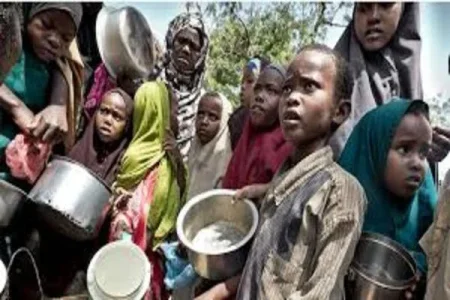
Several Nigerians have lost their lives while desperately seeking government-provided palliatives amidst a deepening hunger crisis across the nation. These tragic incidents shed light on the dire socioeconomic conditions many citizens face and the challenges in effectively distributing relief aid.
One of the most recent and devastating occurrences unfolded at Nasarawa State University in Keffi, where two students tragically lost their lives during a palliative distribution exercise. Governor Abdullahi Sule had initiated the distribution of two 7.5 kg bags of rice and N5,000 to each student to alleviate the hardships the state's university population faced.
However, chaos erupted as students gathered for the distribution, leading to a stampede that claimed the lives of Grace Danladi and Rose Michael, while 23 others were hospitalized. The situation quickly spiraled out of control as students overwhelmed the security measures in place, resulting in a tragic loss of life and injury.
Governor Sule, while expressing condolences to the families of the deceased, emphasized that the incident was not a result of government negligence. He defended the distribution efforts, stating that similar exercises at other institutions had proceeded smoothly.
Unfortunately, the tragedy at Nasarawa State University is not an isolated incident. Reports of similar stampedes and chaos during palliative distribution efforts in other parts of the country have emerged. In Lagos, seven individuals lost their lives while attempting to purchase rice from a Nigerian Customs Service warehouse, highlighting the desperation faced by many Nigerians amid economic hardship.
As the nation grapples with the devastating impact of the hunger crisis, questions arise about the effectiveness of relief efforts and the need for better coordination and planning. While palliatives are intended to provide essential support to vulnerable populations, their distribution has too often resulted in chaos and tragedy, underscoring the urgency of addressing the root causes of food insecurity in Nigeria.




